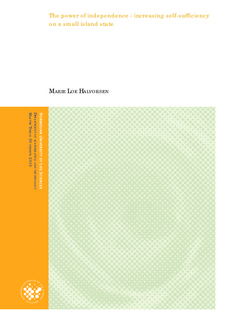The power of independence : increasing energy self-sufficiency on a small island state
Master thesis
Permanent lenke
http://hdl.handle.net/11250/189121Utgivelsesdato
2013-09-06Metadata
Vis full innførselSamlinger
- Master's theses (RealTek) [1722]
Sammendrag
Fossil fuels constitute 21% of import costs and are the basis for 76% of electricity generation on Mauritius. The volatility and unpredictability in fossil fuel prices and supply are incentives to reduce dependency on these fuels. This thesis explores the possibilities for the main island of Mauritius to reduce future fossil fuel dependency, with a focus on the electricity sector. A field trip to the island was conducted in August 2012, to collect data and broaden the understanding of challenges and opportunities in the Mauritian energy system. The implications of implementing solar panels, electric vehicles and gas power plants as alternatives to a planned 100 MW coal power plant are studied. In this scenario, the balance between the need for peak and base capacity is considered. It is shown how solar panels can meet daytime peak demand, while utilizing storage capacity of electric vehicle batteries to meet evening peak demand. Natural gas generators provide backup capacity and flexibility for cloudy days and evening demand. The solutions are scalable, and could be deployed separately or as a combination. Together, they could replace the coal power plant and thereby reducing the expected growth in fossil fuel imports by 28%. Implemented on a larger scale, they could also reduce overall fossil fuel imports. Solutions like this will also be relevant for other small island states and even for larger states as they try to convert their own energy systems towards one based on renewable energy.
